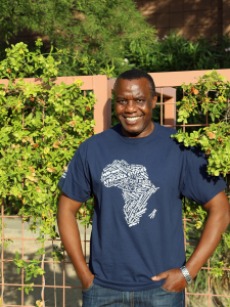
Praise Zenenga holds an Interdisciplinary PhD in Theater and Drama from Northwestern University. He is a theater historian and dramatic literature specialist with a strong interdisciplinary training and background. His research and teaching focus on interdisciplinary approaches to understanding issues of identity, race, aesthetics, politics, social change and social justice in the literature, music, visual arts and performance arts of Africa and African Diaspora communities. He is also interested in Digital Africana Studies and the various Elements of Global Hip-Hop. Several of his publications focusing mostly on masculinities, censorship, avant-gardism, political expression and modes of protest in Zimbabwean, art, theater, dance, sport and everyday life performance have appeared in internationally renowned journals like Theater History, Theater, African Identities, the South African Theater Journal and the Dance Research Journal and various edited books and volumes from reputable international publishers like Oxford, Cambridge, Rodopi and Routledge. He is currently completing a monograph on contemporary popular theater in Africa focusing on the relationship between artists, donors and the state.

